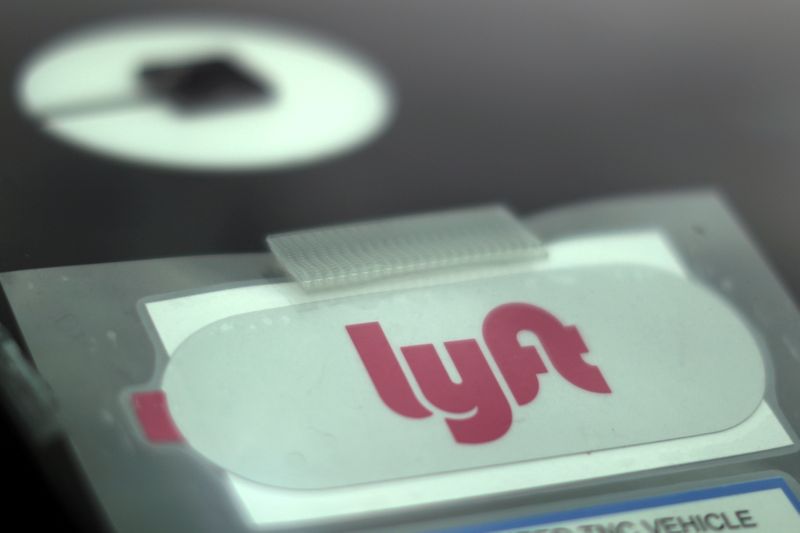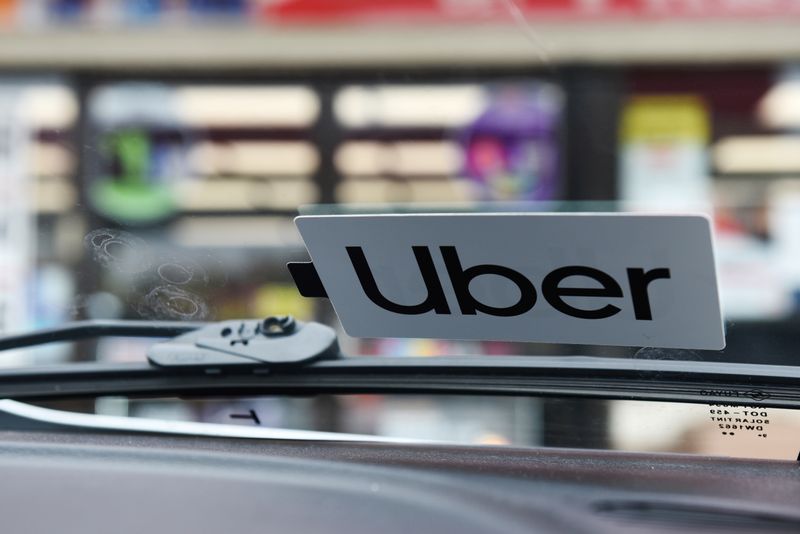By Tina Bellon
(Reuters) - California and three of its largest cities on Tuesday sued Uber Technologies (NYSE:UBER) Inc and Lyft Inc (NASDAQ:LYFT), accusing them of classifying their drivers improperly as independent contractors instead of employees, evading workplace protections and withholding worker benefits.
The suit, joined by Los Angeles, San Francisco and San Diego, was brought under a new state law intended to protect workers in the so-called gig economy. It argued the companies' misclassification harms workers, law-abiding businesses, taxpayers, and society more broadly.
The controversial law strikes at the heart of the business model of technology platforms like Uber, Lyft, Postmates, DoorDash and others who rely heavily on the state's 450,000 contract workers, not full-time employees, to drive passengers or deliver food via app-based services.
"No business model should hang its success on mistreating workers and violating the law," California Attorney General Xavier Becerra said during a virtual news conference with his city counterparts, adding that Uber and Lyft drivers lacked basic worker protections, including sick leave and overtime payment.
Shares in Uber and Lyft dropped briefly but recovered shortly after the lawsuit was announced.
Uber shares were up more than 2% and Lyft shares flat in a broadly positive market.
Uber in a statement said it will contest the action in court, while pushing for the implementation of its own proposal for additional driver benefits.
"At a time when California's economy is in crisis with four million people out of work, we need to make it easier, not harder, for people to quickly start earning," the company said.
Labor unions argue that Uber is trying to circumvent labor laws by creating a new "underclass" of worker entitled to significantly fewer benefits than traditional employees.
Lyft in a statement said it would work with the attorney general and mayors, "to bring all the benefits of California’s innovation economy to as many workers as possible." The company declined to say whether it was pursuing a settlement or would fight the lawsuit in court.
Uber in December sued to block the new law, which is known as AB5, arguing that it punished app-based companies. The company on Tuesday said the new lawsuit was unfairly and arbitrarily singling out ride-hailing companies, but also posed a threat to independent workers across industries.
The companies in the past have said their drivers were properly classified as independent contractors, adding that the majority of them would not want to be considered employees, cherishing the flexibility of on-demand work.
The city attorneys on Tuesday did not say whether they had immediate plans to sue other gig economy companies.
The coronavirus crisis in particular has exposed gig workers' lack of a safety net, with tens of thousands of them seeking sick leave and unemployment benefits.
"American taxpayers end up having to help carry the load that Uber and Lyft don’t want to accept. These companies will take the workers’ labor, but they won’t accept the worker protections," Becerra said.
Becerra also referred to Uber's and Lyft's push to include its drivers in a federal coronavirus relief bill for unemployment benefits. Those benefits are generally reserved for workers whose employers pay into the unemployment insurance system, which Uber and Lyft do not.

